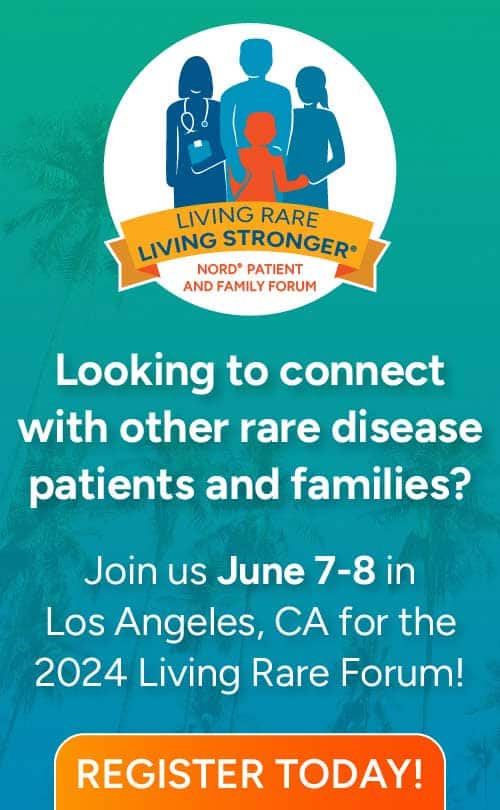Washington, DC, January 30, 2020—According to the 5th Edition of the “State of the States Report,” released today by the National Organization for Rare Disorders (NORD®) and its Rare Action Network (RAN™), while many US states took powerful steps forward in 2019, there is major work yet to be done on a number of policy issues critical to over 25 million Americans affected by rare diseases. The mission of RAN, the nation’s leading rare disease advocacy network, is to ensure that the rare community is represented and supported in all 50 states and to advocate for changes that better the lives of patients and caregivers.
“States have made a great deal of progress in supporting Americans living with rare diseases. But there is still much more that needs to be done,” said NORD President and CEO, Peter L. Saltonstall. “The goal of the State of the States Report is to share concrete and current information that will empower advocates to affect change in their states. NORD is committed to ensuring that the patient voice is heard loud and clear when important policy decisions affecting their lives are made at the state and national levels.”
The annual State of the States Report issues grades to every state and Washington, DC on issues that directly impact the lives of rare disease patients and caregivers. The newly released 5th Edition reveals that positive strides were made in 2019 on pivotal policies including access to medications for patients and newborn screening, while further efforts are still needed on Medicaid coverage and the creation of rare disease advisory councils. Key takeaways of the report include:
- Progress made on newborn screening – For 2019, nearly all states earned an overall grade of an A or B, reflecting the fact that every state implements newborn screening and generally adheres to federal recommendations on which diseases to screen. Texas made a major legislative leap in creating a dedicated newborn screening fund to help improve their newborn screening program. NORD supports robust, well-funded newborn screening programs in every state.
- Gains achieved in increasing access to medications for patients – The majority of states have now enacted policies to protect patients from potentially harmful step therapy practices. Since 2017, over a dozen states considered passing new step therapy protection laws, and in 2019, six states enacted such legislation. Although states have continued to work on placing limits on patients’ out-of-pocket costs, only a few states to date have enacted laws that would implement a total cap or per-drug cap on prescription cost-sharing that applies to all prescription drugs. NORD will continue to support policies that maximize access to therapies rare disease patients need by lowering out-of-pocket costs and supporting step therapy reform that includes clinical criteria requirements and a clear exceptions process.
- Continued advocacy needed for comprehensive Medicaid coverage – In 2019, more states made the move to expand Medicaid, adding to the long list of states that have opted to extend access to this vital safety net. However, some states have pursued harmful policies that could be detrimental to the rare disease community, such as the elimination of retroactive eligibility or the addition of a work requirement. NORD supports the ability of eligible rare disease patients to access comprehensive Medicaid services in their states without unnecessary and harmful hurdles.
- Further action required on rare disease advisory councils – In 2019, five states successfully enacted a rare disease advisory council that will help give the rare disease community greater representation in state government. In 2014, no state had a rare disease advisory council; today, there are eleven states that have some form of an advisory council in place. NORD supports the establishment of robust, well organized, high functioning rare disease advisory councils that can support the needs of the rare disease community in every state.
The 5th Edition of the comprehensive State of the States Report provides detailed analysis across eight major policy issues:
- Medicaid/CHIP eligibility
- Medicaid section 1115 waivers
- Prescription drug out-of-pocket cost protections
- Step therapy
- Medical nutrition
- Newborn screening
- Rare disease advisory councils
- Individual insurance market protections
For more information and to view the state-by-state report cards, maps, contacts, resources and to download a full copy of the State of the States Report, visit rareaction.org.



